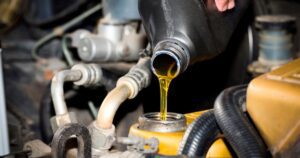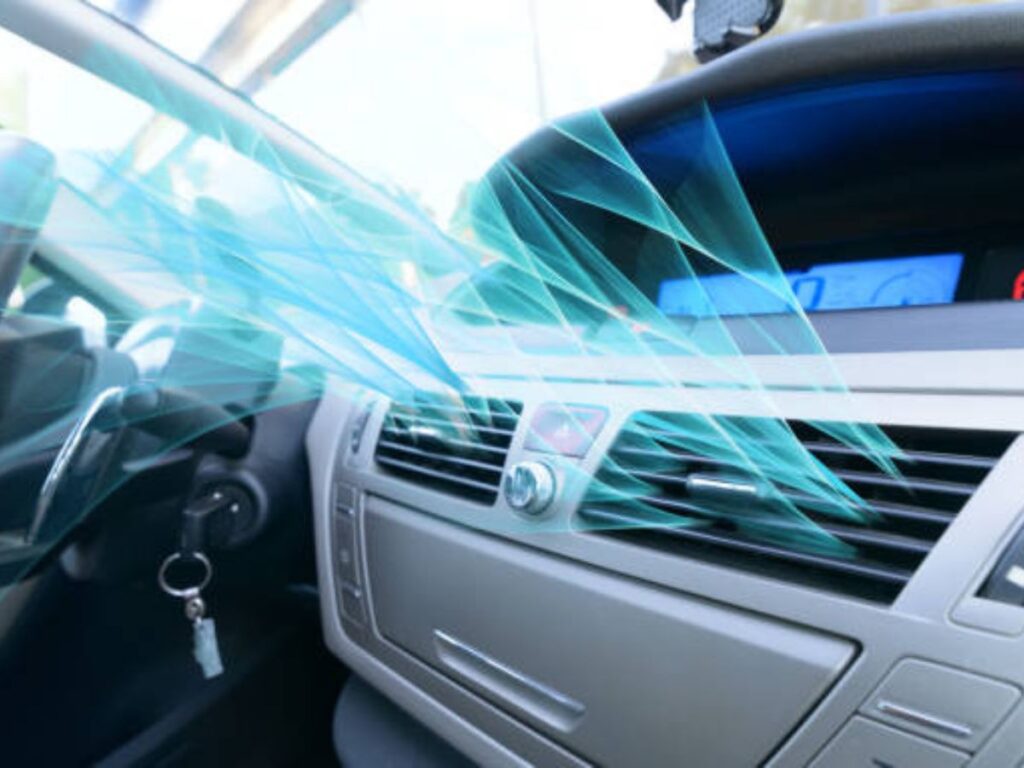The increasing popularity of electric vehicles (EVs) has led to numerous misconceptions and questions regarding their maintenance requirements. One common question that arises is Do electric cars need oil changes?

In this article, I will explore the truth behind this claim, debunking the myth and shedding light on the unique maintenance practices of electric vehicles. I will discuss the absence of oil in electric cars, explore the maintenance requirements specific to EVs, and highlight the benefits of owning an electric vehicle in terms of reduced maintenance costs and environmental impact. Let’s talk about do electric cars need oil changes.
Table of Contents
ToggleThe Absence of Oil in Electric Cars
To understand why electric cars don’t need oil changes, you need to know what makes them different from cars with internal combustion engines (ICE). However, traditional internal combustion engine (ICE) cars have a complicated system of moving parts that need to be oiled through regular oil changes.

Electric cars, on the other hand, run on a totally different system that doesn’t need oil at all. EVs don’t have an internal combustion engine; instead, they have an electric motor that is driven by a rechargeable battery pack. Also, this means that you don’t need to change the oil in an EV.
Unique Maintenance Practices for Electric Cars
Even though electric cars don’t need oil changes, they still need to be taken care of to make sure they work well and last as long as possible. Here are some important ways to take care of electric vehicles:
1. Battery Maintenance:
An electric car’s heart is its battery pack. It’s important to check on the battery and keep an eye on its health on a regular basis. EV users should follow the manufacturer’s instructions to keep the battery working well.
For example, they should avoid extreme temperatures and charging patterns that may damage the battery over time. Also, the battery volume and balance may need to be checked and adjusted from time to time.
Learn more about: Electric Cars
2. Brake System:
Even though electric cars rely more on regenerative braking, which uses the motor to slow the car down and charge the battery, they still have regular stop systems.
Brake pads and rotors need to be checked regularly and replaced every so often to make sure they work safely. Also, EV owners should know how their car stops and adjust how they drive based on that.
3. Tire Maintenance:
Just like any other vehicle, EVs require regular tire rotations, alignments, and tread depth checks. Proper tire maintenance not only ensures optimal performance but also contributes to energy efficiency. Well-maintained tires provide better traction and reduce rolling resistance, thus increasing the overall range of the electric vehicle.
4. Cooling System:
Electric cars employ cooling systems to maintain optimal operating temperatures for both the battery pack and the motor. Periodic inspection and maintenance of the cooling system are vital to prevent overheating and maintain efficiency.
EV owners should ensure that the coolant levels are appropriate and that there are no leaks or blockages in the system.
5. Cabin Air Filter:
Like traditional cars, electric cars need to have their cabin air filters checked and replaced on a regular basis. It makes sure the air inside the car is clean and makes passengers more comfortable.
Keeping the cabin air filter clean and replacing it when the maker says to helps keep the electric car’s interior healthy and pleasant.
6. Electric Motor Maintenance:
While electric motors are generally reliable and require minimal maintenance, occasional inspections are recommended to ensure optimal performance. Also, lubrication of specific components, such as bearings, may be necessary, depending on the motor design.
However, such maintenance tasks are infrequent and are typically performed during scheduled service intervals.
Benefits of Owning an Electric Vehicle

Here are some benefits:
1. Reduced Maintenance Costs:
Compared to regular cars, electric cars usually have fewer moving parts and easier drivetrains. Also, this means that, over time, EVs have lower upkeep costs because they need repairs and service less often.
EV owners can save a lot on regular maintenance costs because they don’t have to change the oil, replace the oil filter, or work on the gearbox.
2. Environmental Impact:
Due to having no tailpipe emissions, electric cars have a much smaller carbon footprint than ICE vehicles. By picking an electric car, you help clean up the air, slow down climate change, and keep natural resources from being used up. Also, less oil is used for upkeep, which is another way that the environment is kept in good condition.
3. Energy Savings:
Even though having an electric car has nothing to do with maintenance, it can help you save money on petrol. Most of the time, charging an EV is cheaper than buying petrol or fuel, which saves money over time. EV drivers can save even more money on energy costs and use less fossil fuels if they take advantage of off-peak charging rates and use renewable energy sources.

Frequently Asked Questions about Do Electric Cars Need Oil Changes
Q1: Do electric cars require oil changes?
A: No, electric cars do not require oil changes. Unlike internal combustion engine (ICE) vehicles, electric cars operate on a different mechanism that does not involve the use of oil for lubrication. Electric vehicles rely on an electric motor powered by a rechargeable battery pack, eliminating the need for oil changes.
Q2: If electric cars don’t need oil changes, what maintenance do they require?
A2: Although electric cars don’t require oil changes, they still require regular maintenance to ensure optimal performance. Some key maintenance practices for electric vehicles include battery maintenance, brake system inspections, tire rotations, cooling system maintenance, cabin air filter replacements, and occasional electric motor inspections.
Q3: How often should I perform maintenance on my electric vehicle?
A: The frequency of maintenance for electric vehicles can vary depending on the manufacturer’s recommendations and the specific model of the car. It is essential to refer to the owner’s manual or consult with the manufacturer or an authorized service center to understand the recommended maintenance schedule for your electric vehicle.
Q4: Is the maintenance of an electric vehicle more expensive compared to a traditional car?
A: Most of the time, electric vehicles are cheaper to maintain than standard cars. Electric cars are easier to maintain because they have fewer moving parts and simpler drivetrains. Electric vehicle owners can save a lot of money on regular maintenance costs over time because they don’t have to change the oil, replace the oil filter, or work on the gearbox.
Conclusion:
In this article, I have told you about do electric cars needle changes. And the answer of the article Do Electric Cars Need Oil Changes is electric cars do not require oil changes due to their distinct powertrain systems. While the absence of oil changes is a significant advantage, EVs still require regular maintenance to ensure optimal performance and longevity.
Battery maintenance, brake system inspections, tire rotations, cooling system maintenance, cabin air filter replacements, and occasional electric motor inspections are some of the crucial maintenance practices for electric vehicles. With proper maintenance and care, electric cars can provide a reliable and eco-friendly transportation solution for a sustainable future.



